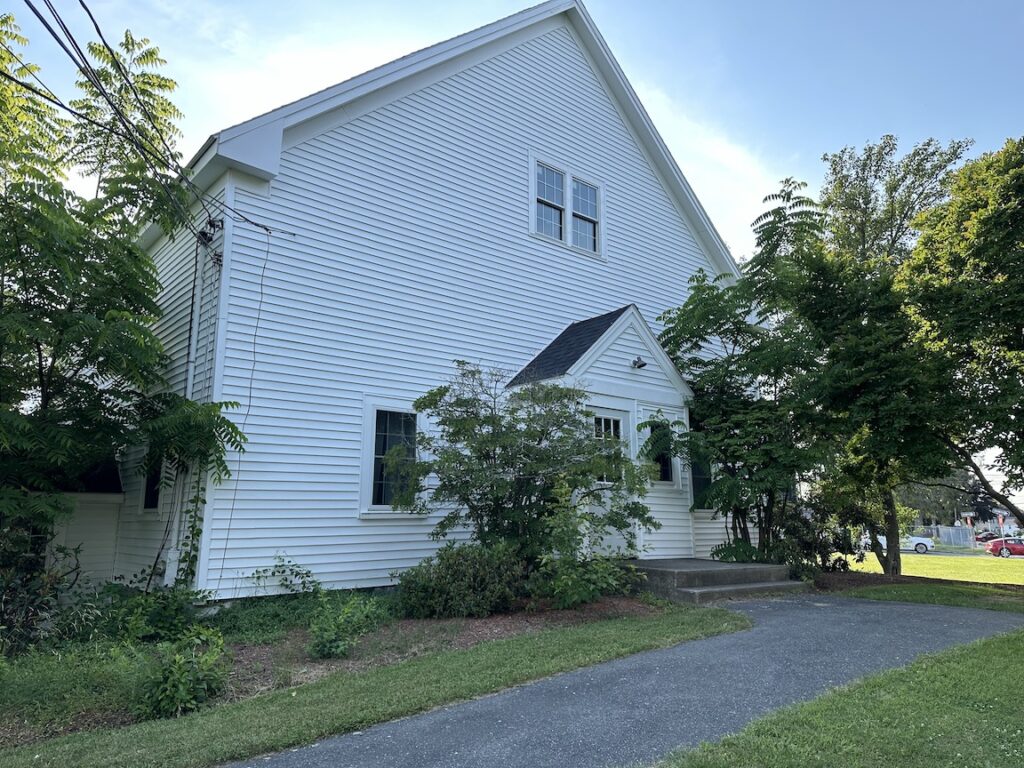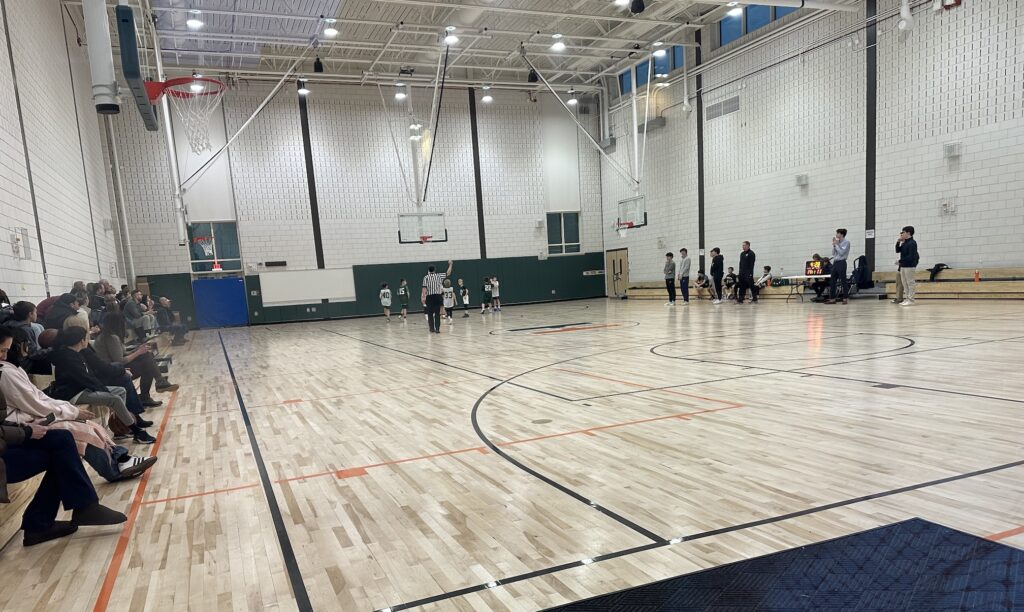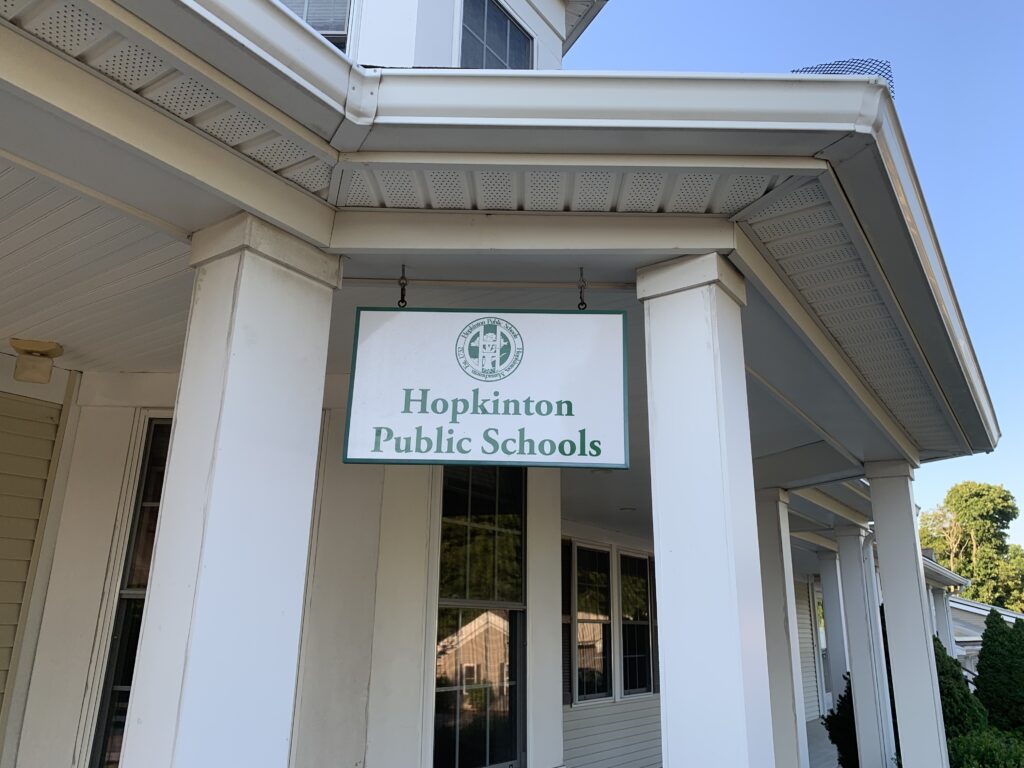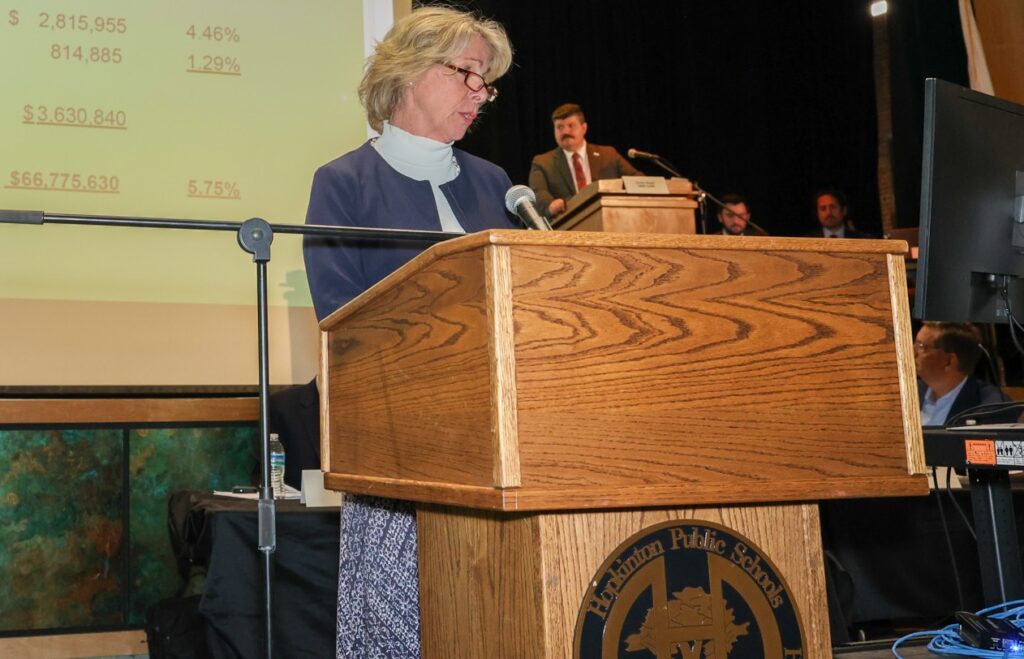
The house in front of Hopkinton Middle School hosts the EXCEL life skills program. PHOTO/JERRY SPAR
Abigail Hanscom, director of student services in Hopkinton, described transition as “the next frontier of education.”
For students ages 18-22, the district offers the EXCEL life skills program, which supports young people with special education eligibility who do not graduate from high school.
The program helps participants find jobs, identify volunteer opportunities and/or access college. It also teaches them how to perform practical tasks like shop at the supermarket, travel by public transportation and go to the bank.
This past year, five students were enrolled. Starting in the fall, Hanscom expects seven young adults to participate.
Hanscom explained that each person with disabilities has a program tailored to meet specific needs. Some participants receive speech/language or occupational therapy while others can be found working at the student-run business called the Niche Hop Shop.
Hanscom said the shop is a “small part of a super complex program” to help these students move on to independent living or whatever other path they take, with the help of a lead teacher and three support staff.
This past year, participants completed a pilot program redesigning apparel with a logo for the Garner Girls Sawmill in Upton.
The shop on Hayden Rowe Street also has an array of products for sale online — products they have designed, including T-shirts, bracelets, hoodies, beanies and stickers with positive sayings like “Be kind,” “Just be you” and “Something wonderful will happen today.”
Housed in the so-called “white house” next to the middle school, students at the Niche Hop Shop trace designs on T-shirts to give each one an individual flair. They also unpack delivery boxes, fold T-shirts and hoodies and prepare orders for shipping and mailing as well as do inventory and purchase raw materials.
Jen Halliday, president of the Special Education Advisory Council (SEPAC), said she hopes the collaboration with the Garner Girls Sawmill inspires other local businesses to recognize and utilize the students’ talents.
Halliday, a parent volunteer at Niche Hop, would like to see it ultimately expand to programs in the community like Westborough’s Sugar Shack or Shrewsbury’s Maple & Main.
“We endeavor to create opportunities and a pathway to employment for adults with disabilities when they leave the school system,” Halliday noted in an email. “Our hope is that the more our work is visible in the community, the closer we will be toward making this a reality.”
Michael Donahue, special education team chair, said he anticipates the program will continue to evolve and expand, with the numbers rising to 11 the year after next and tripling in four years, according to projections.
Donahue explained that a typical Monday morning, for example, would involve students making a grocery shopping list for that week’s lunches and getting the items at the store. They are responsible for cooking their own lunches each day and cleaning up.
“We try to replicate a work environment,” Donahue said. “It’s not like the cafeteria for kids.”
Other skills they may work on include filling out job applications, writing resumes, practicing interviewing for employment and discussing the types of jobs that may interest them, Donahue said.
“[Learning opportunities] involve everything we can do to promote independence: ‘What are you going to need?’ ‘Where would you do this?’ ” he said. “The focus is on building independence and trying to move students so they don’t need to be prompted what to do next.”
The 18-to-22-year-olds often spend time at Hopkins School, he added, putting away books in the library, pushing carts and working in teams. Those who can read spend time identifying letters, he said, although each person has different abilities.
He said a key component is teaching participants how to “ambulate safely” through the community, with some students able to look up train and bus schedules and travel.
Academics emphasize “practical, applicable skills,” he said, including “reading for a purpose,” like directions and doing math in the context of telling time and counting/using money, for example.
Other typical days may include visits to the gym for fitness opportunities, going to Marathon School or the Hopkinton Center for Arts, engaging in leisure activities, and for some, auditing classes at Framingham State University with a peer mentor on campus.
Donahue noted weekly multi-district social groups are another aspect of the program, letting young people form friendships with young adults from other towns who share their interests.
What is special about Hopkinton’s program, Donahue said, is that students are not sitting inside a building all day. Instead, they are venturing out into the community, taking public transportation, marketing Niche Shop products at a local CVS Pharmacy popup shop, grocery shopping and more.
He said he hopes the EXCEL program continues to gain visibility and feels its graduates have met with success after they age out.
One of the program’s alumni recently returned to share his experiences working full-time and traveling on the train and bus, for instance.
In general, Donahue said, EXCEL’s graduates “want to cross paths with us and say hi.”
“When they turn 22, they are going to live in this community as functioning members giving something back,” Donahue said. “We’ve created access points so when they leave us, they are off and running.”





















0 Comments